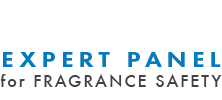Policies and Procedures Governing Adjunct Groups
Adopted September 26, 2024
A key mission of the Expert Panel for Fragrance Safety is to review, evaluate and assess the safety of fragrance ingredients in an independent, unbiased manner in accordance with generally accepted scientific criteria, standards and methodologies. In fulfilling this mission, the Expert Panel has relied on “Adjunct Groups” to provide independent counsel and advice. The following sets forth the Expert Panel’s policies and procedures governing Adjunct Groups.
1. The Role of Adjunct Groups
The Expert Panel for Fragrance Safety is comprised of individuals with diverse backgrounds and expertise acting independent of the fragrance industry. While the Expert Panel encompasses multiple areas of expertise, occasions arise when the Panel seeks specialized technical knowledge which may be outside the specific expertise of existing Panel members. To supplement its expertise and ensure that its safety evaluation of fragrance ingredients is comprehensive, the Expert Panel relies on Adjunct Groups to act solely as advisors to the Panel in specific subject areas.
2. Current Adjunct Groups
As of 2024, there are five “standing” Adjunct Groups in the following subject areas: Environmental, Genotoxicity, Phototoxicity, Reproduction and Respiratory. Ad hoc Adjunct Groups may also be created as needed by the Panel to provide expertise in specific subject areas beyond those covered by the standing Adjunct Groups.
3. Objectives of Standing Adjunct Groups
The following are the objectives of each of the five standing Adjunct Groups:
Environmental Adjunct Group: Provide expertise in the areas of risk assessment and the fate and effects of fragrance materials in the environment
Genotoxicity Adjunct Group: Provide genotoxicity expertise for project design and data interpretation
Phototoxicity Adjunct Group: Provide expertise in the area of photoirritation and photoallergy research project design and data interpretation
Reproduction Adjunct Group: Determine state-of-the-art reproduction developmental study protocols and review
Respiratory Adjunct Group: Provide inhalation expertise and strategic guidance on appropriate models of respiratory exposure, in vitro methodological development, and inhalation toxicology endpoint review
4. Composition of Adjunct Groups
To preserve Adjunct Group independence, members of the fragrance industry are excluded from participating. Membership is generally restricted to academicians, scientists from governmental bodies and subject matter experts not part of the fragrance industry. Each Adjunct Group will have at least one “liaison” from the Expert Panel who will lay out the specific issue(s) that the group should address, participate in Adjunct Group discussions and report back to the Expert Panel the group’s advice and recommendations. Additionally, the Research Institute for Fragrance Ingredients (RIFM) will typically appoint a staff member to each Adjunct Group to serve as an official point of contact, obtain guidance in preparing safety assessments, and assist group members as needed.
The names and affiliations of the scientific experts serving on each Adjunct Group should be posted on the Expert Panel’s website.
5. Size of Adjunct Groups
As a general guideline, Adjunct Groups should have a minimum of three members and a maximum of six members (excluding liaisons with the Expert Panel).
6. Output/Deliverables of Adjunct Groups
Work output of Adjunct Groups may consist of manuscript or literature review, preparation of a scientific paper addressing a specific protocol or scientific approach, management or conduct of a scientific investigation, or guidance provided to the Expert Panel through verbal or written interaction.
7. Posting of Adjunct Group Policies and Procedures
The foregoing policies and procedures governing Adjunct Groups, including any revisions thereto, shall be posted on the Expert Panel’s website.
